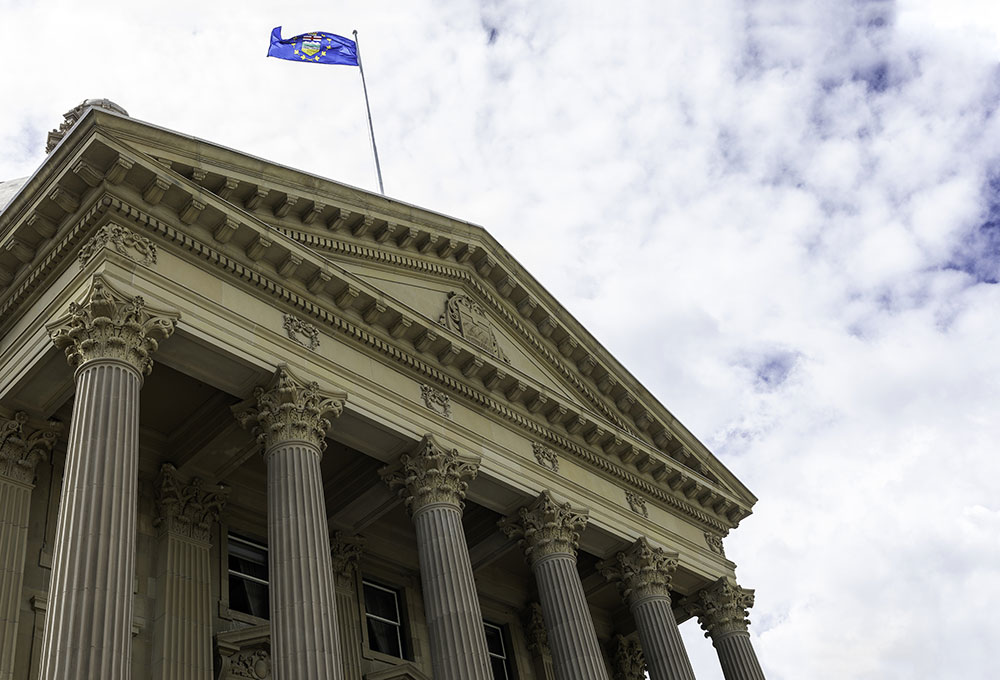

Features
Compensation
Alberta leaving minimum wage untouched as it releases 2020 report from panel
March 20, 2023
By
Talent Canada
 The Alberta Legislature building. (Rita Petcu/Adobe Stock)
The Alberta Legislature building. (Rita Petcu/Adobe Stock) Alberta seems to be content staying pat when it comes to the minimum wage in the province, which currently sits at $15 per hour.
“Maintaining the current minimum wage gives employees and employers predictability and stability during a time of economic growth and labour shortages,” said Brian Jean, the province’s Minister of Jobs, Economy and Northern Development.
Jean made the comments after the government released a report, conducted in 2020, following “requests from several individuals and organizations.” The panel was struck by the previous NDP government in 2019 to look into the impact moving to $15 an hour had on the economy. The last minimum wage increase took place five years ago in 2018.
As recently as last year, the province said it had no plans to ever release the Report of the Minimum Wage Expert Panel, which was submitted on Feb. 26, 2020. But that changed on Friday when Jean issued a statement and the province posted the report.
Lower wage for liquor servers?
Among other things, the report made a recommendation to have a lower minimum wage for liquor servers who earn tips — something that was eliminated in 2016. It noted that these workers are “fundamentally different” than other workers making the minimum wage.
“Evidence indicates that between their hourly wages and tip income, liquor servers can take home earnings that, calculated on an hourly basis, can be up to $50 per hour (and sometimes even higher),” it said. “Recognition of this has led legislators in Canada and the United States to establish different policy responses for these employees.”
It also noted this policy gave restaurants flexibility to “competitively compensate back-of-house staff and avoid increases in menu prices.”
But Jean shot down that recommendation.
“Contrary to the Opposition’s claims, Alberta’s government has no plans to change the current minimum wage structure or introduce a separate liquor server minimum wage,” he said.
Jean said the panel did excellent work, but that said the value of the report was in “a historical context. It must be considered in light of current economic conditions in the province.”
What’s in the report?
The panel arrived at a number of interesting conclusions, including:
- In 2014, 2.3 per cent of the workforce earned the minimum wage. By 2018, that number had jumped to 11.5 per cent — the second highest in the country.
- About 21,000 jobs were lost between 2015 and 2018 as a result of the increases among workers aged 15 to 24.
- Young Albertans, and those outside Edmonton and Calgary, bore the brunt of the job losses.
- While older Albertans lost jobs during that period, the minimum wage hike wasn’t to blame — “these losses were influenced by other factors, including the economic downturn.”
- Employers responded to the minimum wage increases by: cutting staff; reducing or eliminating plans to hire additional workers; reducing or eliminating plans to hire young workers; postponing renovation and expansion plans; and raising prices.
It also recommended an entry-wage rate for workers with less experience and tied future increases to the consumer price index.
You can view the full report here.
Print this page